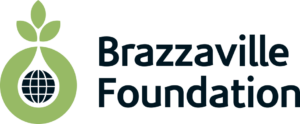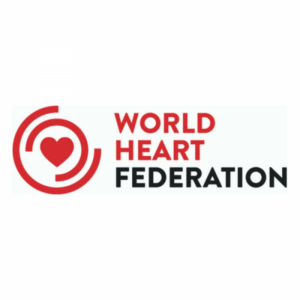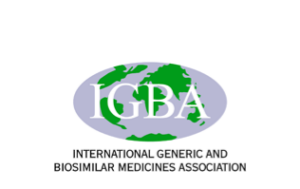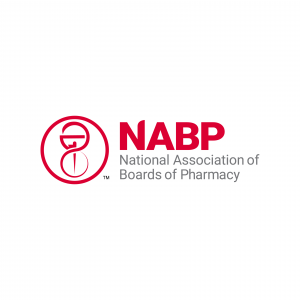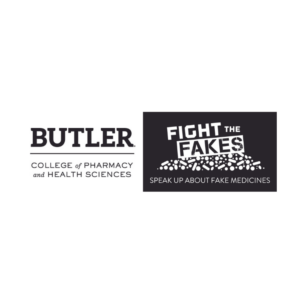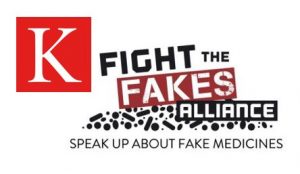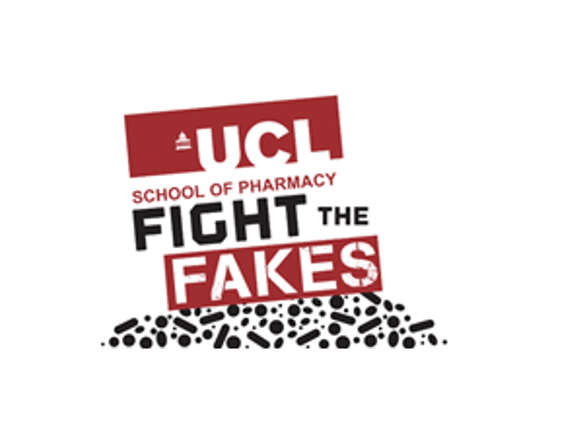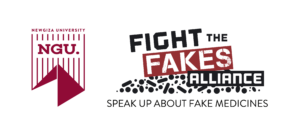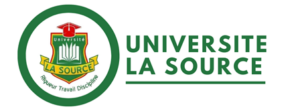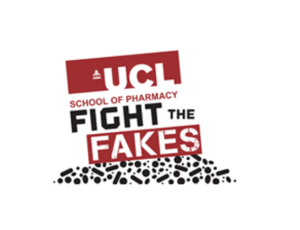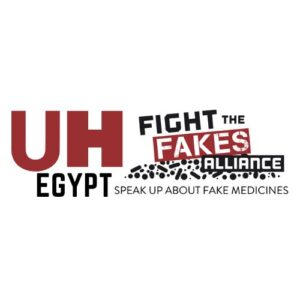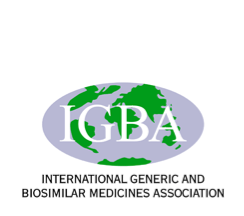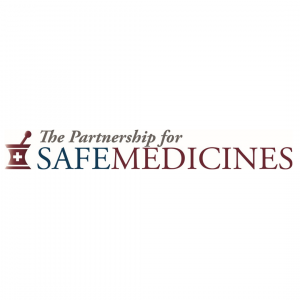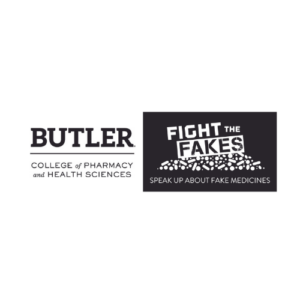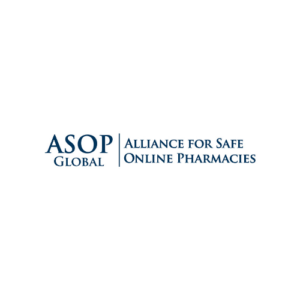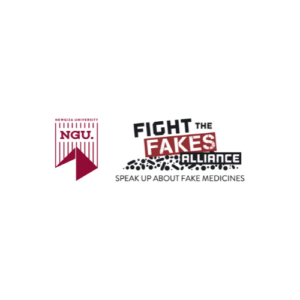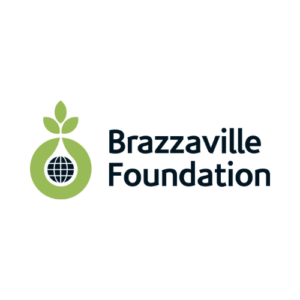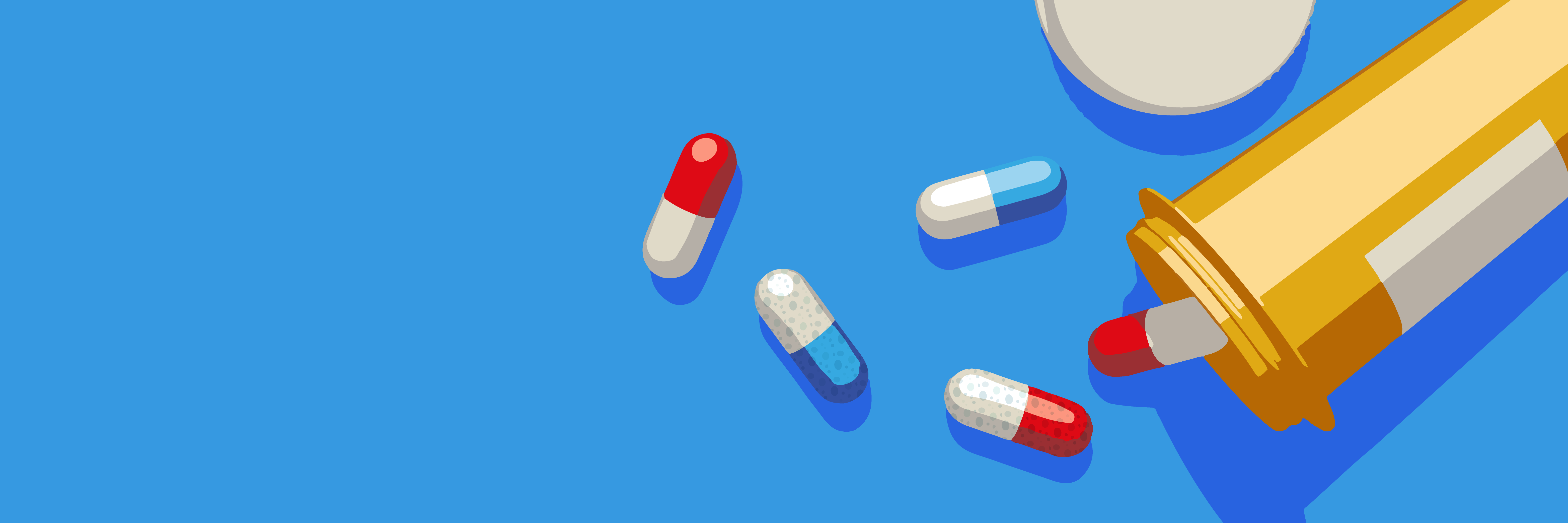
OUR MEMBERS
FULL MEMBERS
Brazzaville Foundation
The Brazzaville Foundation is a London-based non-for-profit organisation registered with the Charity Commission for England and Wales. Its mission is to design, promote and support African initiatives in the fields of peace, the environment and health.
The Foundation has been committed to addressing the issues of falsified medicines since 2017 and in January 2020, fostered the creation of the Lomé Initiative, together with African heads of state and international organisations, including WHO (World Health Organization). This initiative aims to develop and implement national plans, promote relevant international agreements, and introduce legislation to criminalise the trafficking in substandard and falsified medicines in Africa.
GS1
In addition to be known as an international standard organisation, GS1 Healthcare is a recognised neutral and open community bringing together all related healthcare stakeholders to lead the successful development and implementation of global GS1 standards enhancing patient safety, operational and supply chain efficiencies.
In this context, traceability and the fight against counterfeit medicines and medical devices is at the center of many of our ongoing projects and initiatives. In 2019, GS1 held the 2nd African Healthcare Conference in Lagos, Nigeria to share knowledge and experiences about using GS1 standards to enable traceability and access to safe medicines for patients around the world. On that occasion, under the lead of the National Agency for Food and Drug Administration and Control in Nigeria (NAFDAC), a call to action for the Africa Strategy for Pharmaceutical Traceability was signed by twenty-five African regulatory authorities and six health financing and donor organisations committing to pursue pharmaceutical traceability based on global supply chain standards.
GS1 also works closely with regulatory bodies, supporting pharmaceutical traceability and Unique Device Identification (UDI) regulations and standards in more than 70 countries globally; in 2019 GS1 was designated as an issuing entity for Unique Device Identification (UDI) by the European Commission, enabling medical device manufacturers to use GS1 standards in order to meet European UDI requirements.
International Alliance of Patients’ Organizations
The International Alliance of Patients’ Organizations (IAPO) is a unique global alliance of member organizations representing patients of all nations across all disease areas who work to get the patient’s voice heard by everyone involved in healthcare. We nurture relationships with members, partners and all those involved in healthcare, and build dialogue with decision-makers around the world to promote patient-centred healthcare. We form clear positions on relevant healthcare policies and processes and then advocate for change with a strong patients’ voice at international, regional and national level. Our vision is to see patients placed at the centre of healthcare. Our mission is to help build patient-centred healthcare worldwide.
International Federation of Pharmaceutical Manufacturers & Associations
IFPMA represents the research-based pharmaceutical companies and associations across the globe. The research-based pharmaceutical industry’s 2 million employees research, develop and provide medicines and vaccines that improve the life of patients worldwide. Based in Geneva, IFPMA has official relations with the United Nations and contributes industry expertise to help the global health community find solutions that improve global health.
International Federation of Pharmaceutical Wholesalers
IFPW is the global trade association representing the full-service pharmaceutical wholesaler and distribution industry. Its mission is to help its members and stakeholders advance the safe, efficient and continuous access to pharmaceuticals worldwide through the promotion of good distribution practices and services.
Through it’s programs and services IFPW promotes the value proposition of full-line wholesalers to all stakeholders; strengthens key stakeholder relationships through engaging in meaningful and relevant dialogues; participates in initiatives to improve access to medicines and advance global health; and serves as the industry’s international networking and information platform.
IFPW’s headquarters are located just outside of Washington D.C. in Virginia, USA.
Medicines for Malaria Venture
Medicines for Malaria Venture (MMV) is a leading product development partnership (PDP) in the field of antimalarial drug research and development. Its mission is to reduce the burden of malaria in disease-endemic countries by discovering, developing and facilitating delivery of new, effective and affordable antimalarial drugs.
Since its foundation in 1999, MMV has developed and brought to registration four new medicines with its partners: Pyramax®, (pyronaridine-artesunate) co-developed with Shin Poong; Eurartesim® (dihydroartemisinin-piperaquine) with Sigma-Tau; Guilin’s artesunate injection for the treatment of severe malaria, Artesun®; and Coartem® Dispersible (artemether-lumefantrine), a child-friendly formulation developed with Novartis. Since 2009, over 200 million courses of Coartem Dispersible treatment have been supplied to 50 malaria-endemic countries; and since prequalification in 2010, an estimated 12 million vials of artesunate injection have been delivered, saving 80,000-90,000 additional lives.
Managing the largest portfolio of antimalarial R&D projects ever assembled, of over 65 projects, MMV has seven new drugs in clinical development addressing unmet medical needs in malaria, including medicines for children, pregnant women and relapsing malaria, and drugs that could support the elimination/eradication agenda. MMV’s success in research and access & product management comes from its extensive partnership network of over 300 pharmaceutical, academic and endemic-country partners in 50 countries.
MMV’s vision is a world in which innovative medicines will cure and protect the vulnerable and under-served populations at risk of malaria, and ultimately help to eradicate this terrible disease.
Partnership for Safe Medicines
Founded in 2003, the Partnership for Safe Medicines (PSM) is a public health organization committed to protecting consumers against counterfeit, substandard, or otherwise unsafe medicines. PSM works with patient advocacy groups and consumer groups to raise awareness of counterfeit drugs and to teach patients and medical professionals how to buy medication safely and affordably without risking their lives by dealing with unlicensed, dangerous counterfeit medication sellers. PSM wants all consumers to be aware that counterfeit medicines do exist, they are not safe and together we can take action to avoid them.
U.S. Pharmacopeia
USP – Global Expertise, Trusted Standards, Improved Health
The U.S. Pharmacopeial Convention (USP) is a nonprofit scientific organization that improves global health through public standards and related programs that help ensure the quality, safety, and benefit of medicines and foods. USP’s standards are used worldwide. For more information about USP visit www.usp.org.
World Heart Federation
The World Heart Federation is dedicated to leading the global fight against heart disease and stroke, with a focus on low- and middle-income countries, via a united community of more than 200 member organizations that brings together the strength of cardiac societies and heart foundations from more than 100 countries. It aligns its efforts around the WHO-related target of a 25 percent reduction in premature CVD mortality by 2025.
With its members, the World Heart Federation works to build global commitment to addressing cardiovascular health at the policy level, generates and exchanges ideas, shares best practice, advances scientific knowledge, and promotes knowledge transfer. to tackle CVD– the world’s number one killer. Through our collective efforts, we can help people all over the world to lead longer and better heart-healthy lives.
ASSOCIATE MEMBERS
Alliance for Safe Online Pharmacies
The Alliance for Safe Online Pharmacies (ASOP Global) is a 501(c)(4) non-profit organization dedicated to protecting consumers around the world, ensuring safe access to medications, and combating illegal online drug sellers.
ASOP believes Illegal online drug sellers are a global problem that requires national and global solutions and works to make the internet a safer place for patients through research, education, advocacy, and stakeholder collaboration.
Association for Accessible Medicines
The Association for Accessible Medicines improves access to safe, quality, effective medicine. Better access to medicine is relevant to everybody because, after all, we’re all patients at some point.
Health is the foundation for everything in life. Healthy people are better able to reach their full potential. Generics and biosimilars help more people in more places live healthier and longer.
- Driving down the costs of existing drugs and developing new ones means people can afford the medicines they need.
- Increasing competition means payers and patients have a choice in the marketplace.
- Working to get safe, effective, and more affordable medicines out of the lab and into the hands of the people who need them is a goal that touches not just individuals and families, but the overall economy, and the entire nation.
As manufacturers of 9 out of every 10 prescriptions dispensed in the U.S., members of the Association for Accessible Medicines form an integral, and powerful, part of the healthcare system.
European Medicines Verification Organisation
In order to protect patients, the EU Falsified Medicines Directive (FMD) introduces harmonized measures to prevent falsified medicines from entering the legal supply chain of the European market. An end-to-end verification system is being implemented through a European-wide system (European Medicines Verification System – EMVS) and the implementation of safety features in order to verify the authenticity of the affected medicines before being dispensed to the public. EMVO is strongly committed to guarantee that the implementation of the Falsified Medicine Directive is a secure and beneficial solution for all supply chain partners ensuring as overarching goal patients’ safety.
The European Medicines Verification Organisation (EMVO) was created in 2015 as a joint initiative of EU supply chain stakeholders, representing manufacturers (EAEPC, EFPIA, Medicines for Europe,), wholesalers (GIRP), community pharmacists (PGEU) and hospitals (EAHP, HOPE) and is responsible for advancing the formation of the European Medicines Verification System (EMVS) in accordance with the EU’s Falsified Medicines Directive (FMD) and the Delegated Regulation (DR). It ensures the implementation of a functioning, secure, interoperable, and cost-effective system across Europe, to ensure patient health and safety.
The International Generic and Biosimilar medicines Association
The International Generic and Biosimilar medicines Association (IGBA) strengthens cooperation between associations representing manufacturers of generic and biosimilar medicines from around the world. Adopting a patient-centric approach, IGBA works to improve patients’ access to quality-assured, safe, and cost-effective medicines by promoting competition and enabling innovation in the pharmaceutical sector and sustainable economic contributions for all stakeholders.
International Council of Nurses
The International Council of Nurses (ICN) is a federation of more than 130 national nurses associations representing the millions of nurses worldwide. Operated by nurses and leading nursing internationally, ICN works to ensure quality nursing care for all and sound health policies globally.
ICN’s ever-increasing networks and connections to people reinforce the importance of strong linkages with national, regional, and international nursing and non-nursing organisations. Building positive relationships internationally helps position ICN, nurses, and nursing for now and the future. Our work with the specialised agencies of the United Nations system, particularly with the World Health Organization, the International Labour Organisation, and the World Bank, are important for nurses everywhere. In addition, we work closely with a range of international non-governmental organisations and other partners.
National Association of Boards of Pharmacy
Founded in 1904, the National Association of Boards of Pharmacy (NABP) aims to ensure the public’s health and safety through its pharmacist license transfer and pharmacist competence assessment programs, as well as through its digital pharmacy, drug distributor, and DMEPOS accreditation programs.
NABP’s member boards of pharmacy are grouped into eight districts that include all 50 United States, the District of Columbia, Guam, Puerto Rico, the Virgin Islands, the Bahamas, and 10 Canadian provinces.
The Global Pharma Health Fund
The Global Pharma Health Fund (GPHF) is a charitable organization initiated and funded exclusively by donations from Merck, Darmstadt/Germany.
Within international development assistance, the GPHF aims to improve health care, the work currently supporting the fight against counterfeit medicines proliferation using the GPHF-Minilab™.
The GPHF-Minilab™ is a mobile mini-laboratory for rapid drug quality verification and counterfeit medicines detection protecting the health of millions of people anywhere in developing countries.
ACADEMIC/YOUTH MEMBERS
Butler University
The College of Pharmacy at Butler University originated in 1904, and in 1914 officially became the Indianapolis College of Pharmacy (ICP). In 1930 the ICP became one of the first pharmacy colleges to create a four-year baccalaureate curriculum. In 1945 Butler and the Indianapolis College of Pharmacy merged, and erected a new building on Butler’s campus in 1950. The building, with its fully mediated classrooms and state-of-the-art research and teaching laboratories, was completely renovated in 2008–2009. The name of the college was changed to College of Pharmacy & Health Sciences (COPHS) when the Physician Assistant program was developed in 1995.
At COPHS, you will find students and faculty who are invested in creating a community of health professionals committed to excellence. Our programs prepare students to become global leaders in their chosen professions. The rigorous curriculum and supportive learning environment allows students to explore different options available in their respective fields. Our Doctor of Pharmacy (PharmD) degree program prepares graduates to be highly skilled pharmacy practitioners: authorities on the use of medicines able to apply pharmaceutical and biomedical science to the practical challenge of safe and effective drug therapy. Students enjoy close relationships with faculty who are invested in their success, provide unparalleled education, and create opportunities to engage in practice-defining research.
University of Hertfordshire-Global Academic Foundation
Global Academic Foundation (GAF), which hosts the University of Hertfordshire in Egypt, is a leading academic institution in the Arab Republic of Egypt operating under the Egyptian Ministry of Higher Education in compliance with the international branch campus law no. 162 of 2018, located in the New Administrative Capital of Egypt.
GAF and UH have collaborated to bring UK-Validated M-Pharm and Pharmaceutical Sciences programmes to Egypt, where students are able to apply theory into practice; aiming to have a positive transformational impact on the surrounding Egyptian and Global community.
UH-GAF academics and students are glad to join Fight the Fakes alliance, they are eager to collaborate in facing the substandard and falsified medicines which threaten patients’ lives as well as the total healthcare system tremendously.
UH-GAF is so excited to establish a school club that would work on arranging workshops, scientific activities, awareness campaigns, and seminars to support Fight the Fakes in achieving their respectful association objectives that work for the benefit, safety and security of the whole globe.
International Pharmaceutical Students' Federation
The International Pharmaceutical Students’ Federation (IPSF) was founded in 1949 by eight pharmacy student associations in London, United Kingdom. The Federation now represents approximately 500,000 pharmacy students and recent graduates in 92 countries worldwide.
The Federation aims to equip future pharmacy workforce for a professional life in a local and international setting and increase their involvement in global health. Through collaborative approaches it strives to strengthen the interprofessional commitment to health and combating global health threats. Activities include public health and advocacy initiatives, including anti-counterfeit drug campaign, professional development opportunities and a wide range of scientific and educational publications. The flagship student exchange programme impacts nearly 1,000 annually, whereas the Federation’s events, with the World Congress at the very forefront, enjoy growing professional reputation.
King's College London
King’s College London is one of the top 10 UK universities in the world (QS World University Rankings, 2018/19) and among the oldest in England. King’s has more than 31,000 students (including more than 12,800 postgraduates) from some 150 countries worldwide, and some 8,500 staff. King’s has an outstanding reputation for world-class teaching and cutting-edge research. In the 2014 Research Excellence Framework (REF), eighty-four per cent of research at King’s was deemed ‘world-leading’ or ‘internationally excellent’ (3* and 4*).Since our foundation, King’s students and staff have dedicated themselves in the service of society. King’s will continue to focus on world-leading education, research and service, and will have an increasingly proactive role to play in a more interconnected, complex world.
King’s College London Fight the Fakes will seek to raise awareness of the dangers of substandard and falsified medicines. We will have a primary focus on the global issue of counterfeit anti-infective medicine particularly counterfeit antimalarials and antibiotics which causes several deaths annually globally. This initiative falls well within our Strategic Vision 2029. Visit our website to find out more.
University College London
The UCL School of Pharmacy (formerly The School of Pharmacy, University of London) is situated in Bloomsbury, central London, where it forms part of the Faculty of Life Sciences of University College London. UCL School of Pharmacy is one of the UK’s leading centers of pharmacy education and research.
We enjoy a lively and stimulating academic environment in which teachers, researchers, professionals and students interact. All are connected by an interest in medicines – how they work, how they are made and how they are used by people to prevent and treat disease.
Research focuses on advancing and understanding medicines and health care, and in creating new medicines. Our performance in the 2008 Research Assessment Exercise marks UCL School of Pharmacy as one of the most important centers for pharmacy research in UK education.
Newgiza University
Newgiza University (NGU) is a multidisciplinary private university in Cairo, Egypt. Located on the legendary Giza Plateau, NGU delivers a world-class university education to students locally, regionally, and internationally. NGU welcomed its first class of students in September 2016 at its brand new campus in the midst of the NEWGIZA Development. The education is marked by a strong focus on academic excellence and practical knowledge, spearheaded by unrivalled teaching staff and collaborations with some of the most renowned universities around the world.
Newgiza University – Fight the Fakes Chapter has been rallying to combat the dangers of falsified medicines since 2019 with awareness campaigns dedicated by youth to their fellow professionals in training on how to identify, avoid and report falsified medicines in Egypt. Their decision to join Fight the Fakes was partly sparked by the increased regulatory interest and the movement towards Universal Health coverage.
Université la Source Conakry
Université la Source Conakry is a private University of Medicine and Pharmacy with an emphasis on inclusivity and research-intensive engagement. The University is one of the largest and most diverse in the Republic of Guinea and is recognized and accredited in of Africa including Madagascar. The University also has many University students who were victims of falsified and substandard medical products (SFs) in the past, which is what motivated them to study pharmacy or medicine so that this would not happen to others in the future. Every year, Université la Source Conakry conducts a campaign about substandard and falsified medical products (SFs), where students and University employees visit villages and other cities outside of Conakry to teach health workers and the local population including schools for children about the dangers of SFs. During the campaigns, the University highlights the importance of buying medication only from accredited pharmacies and not collecting it from garbage or from the street. The Université la Source Conakry recognizes the importance of fighting against fake medicines and has been committed to the fight against SFs for several years. Efforts from the university, including raising visibility of the issue at congresses and other events across the continent where medicines are analyzed, against the rise of substandard and falsified medicines emphasizes the University’s commitment to the cause.
Medical University of Warsaw
The Medical University of Warsaw (MUW) is one of the oldest medical schools in Poland. For over 200 years it has provided education and training in medicine and pharmacy at undergraduate and postgraduate levels. MUW’s programs meet the highest international standards of university-level education and are based on the principles of good clinical and pharmaceutical practice.
The academic staff of the Medical University of Warsaw are recognized nationally and internationally for their contributions to the research and practice in medicine and in pharmacy. Many of them hold the prestigious posts of National Medical Consultants.
The Medical University of Warsaw provides general and specialty training at both undergraduate and postgraduate levels. Students learn at our six clinical teaching hospitals who provide general and tertiary medical care to patients. Our students and staff also conduct scientific and clinical research at these hospitals as well as are involved in a number of clinical academic departments located in other hospitals in Warsaw.
MUW offers 19-degree programs including 3 full-time degree programs in English: Dentistry, Medicine and Pharmacy.
MUW has scientific research cooperation with many universities and research institutions in Europe, especially Germany, France, Sweden, Netherlands, Austria and Great Britain. At present this cooperation is also being developed with other foreign partners from Europe, USA and Asia – China, India, Malaysia and Japan.
The Medical University of Warsaw has signed cooperation agreement with the Association “Stop Illegal Pharmaceuticals”, concerning education related to the pharmaceutical crime. MUW also cooperates with the Police School in Piła and Polish Anti-Doping Agency POLADA.
Department of Forensic Pharmacy
Medical University of Warsaw
Banacha 1 Str., 02-097 Warsaw, Poland
www.farmacjakryminalistyczna.wum.edu.pl
https://www.facebook.com/FarmacjaKryminalistycznaWUM
